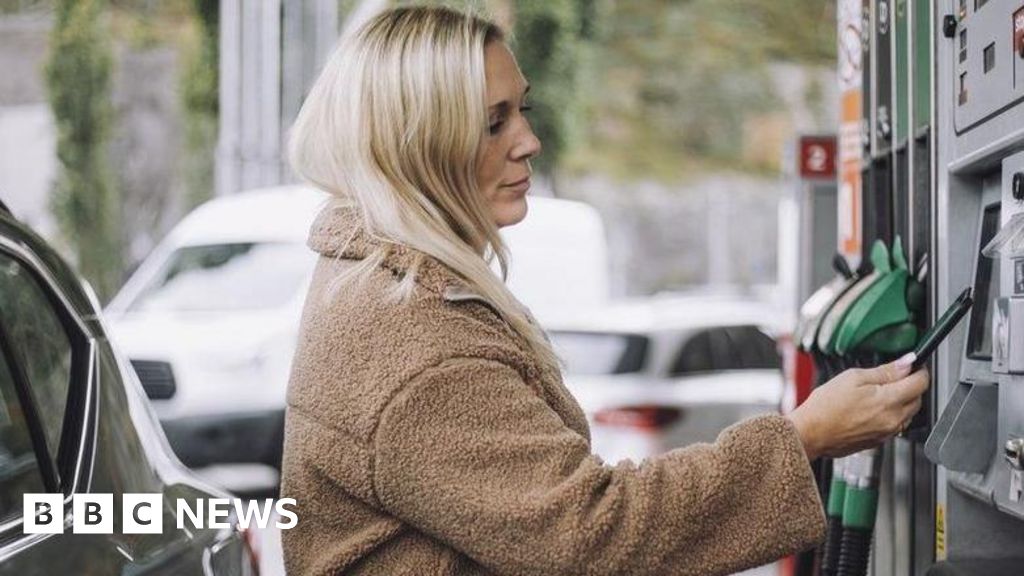 Getty Images
Getty ImagesPetrol prices have fallen to their lowest level for three years, with the average price for a litre of unleaded costing about £1.35, the RAC has said.
Lower global oil prices and a stronger pound were the main reasons prices had fallen, the motoring group said.
The figure is considerably lower than in July 2022, when petrol prices hit a record high of almost £1.92 per litre when oil prices surged following Russia’s invasion of Ukraine.
Simon Williams, fuel spokesman for the RAC, said petrol prices could fall further.
“We believe there is scope for pump prices to come down further in the next few weeks to reflect the lower wholesale costs retailers are paying when they buy fresh fuel stocks,” Mr Williams said.
Depending on where drivers were filling up, he said people could be “paying as little as £1.26 for a litre of unleaded – making the cost of refuelling a typical family car come in at under £70”.
The average price of diesel is around £1.41 per litre which is also close to a three-year low, based on data from the Competition and Markets Authority (CMA).
The falling price of fuel will come as a boost to drivers, who have been hit hard in recent years by higher prices for all consumer goods.
The RAC has been critical of retailers, claiming that they have failed to drop prices as swiftly as they should have as wholesale costs have fallen.
Concerns over fuel prices prompted the competition regulator, the CMA, to look into the sector.
It said in July weakened competition in the fuel sector was impacting drivers’ wallets and that supermarkets’ profit margins – which is the difference between the price they buy fuel at and what they charge motorists – had doubled since 2019.
But the Petrol Retailers Association (PRA), which represents independent forecourts, has argued its members’ margins have been “under pressure” due to higher labour and energy costs, and reduced sales.
The RAC said the reason for “tumbling” pump prices now was due to “a relatively low oil price” of about $75 per barrell due to lower global demand, “combined with a relatively strong pound” helped by inflation falling.
With fuel traded in US dollars, a stronger pound means UK fuel retailers get more “bang for their buck” when buying in new stock on the wholesale market, the RAC said.
Fuel prices rose sharply amid fears of a global economic shock following Russia’s invasion of Ukraine.
Russia is the third-largest oil exporter and some Western countries, decided to halt or restrict imports from the country in response to Russia’s actions. It meant demand for oil from other producers increased, leading to increased prices.
At one point Brent crude – the global benchmark for oil prices – jumped to $139 a barrel, the highest level for almost 14 years.
The UK only imports about 6% of oil from Russia, so is not as dependent on Russia as other European countries are and has said it plans to phase it out. It is, however, affected by the global shifts in price.

